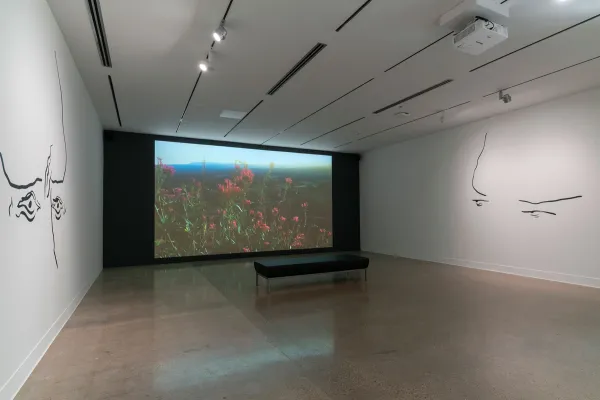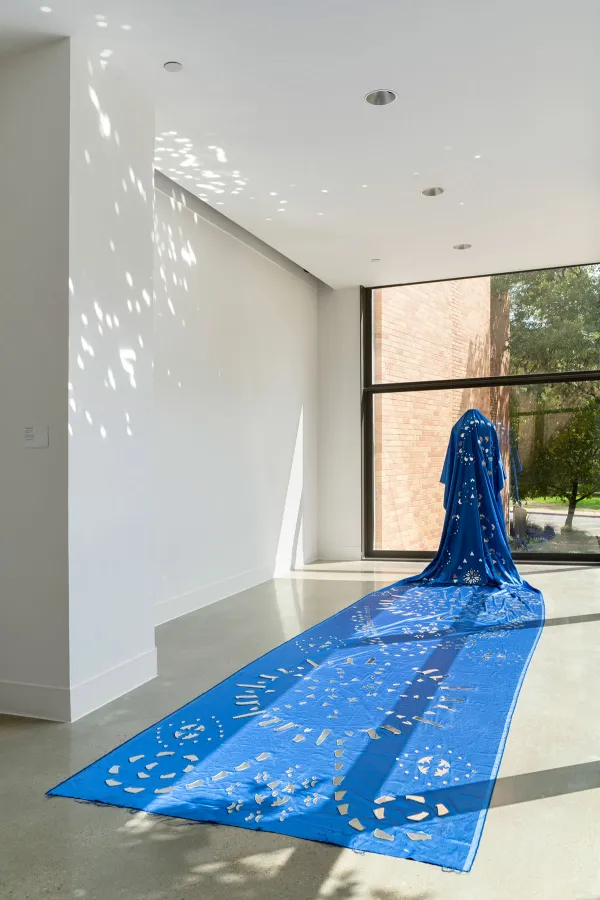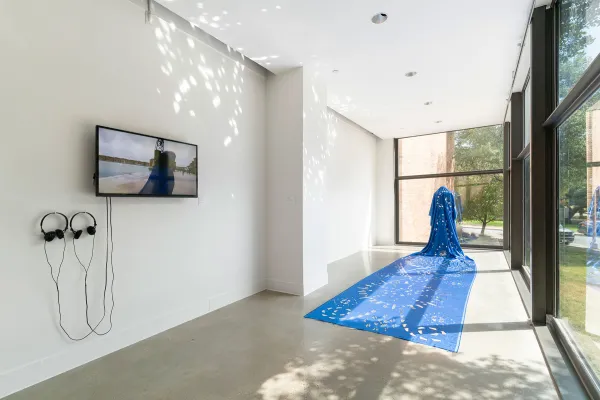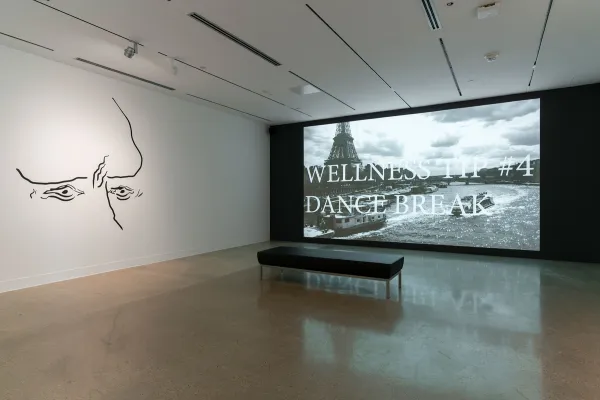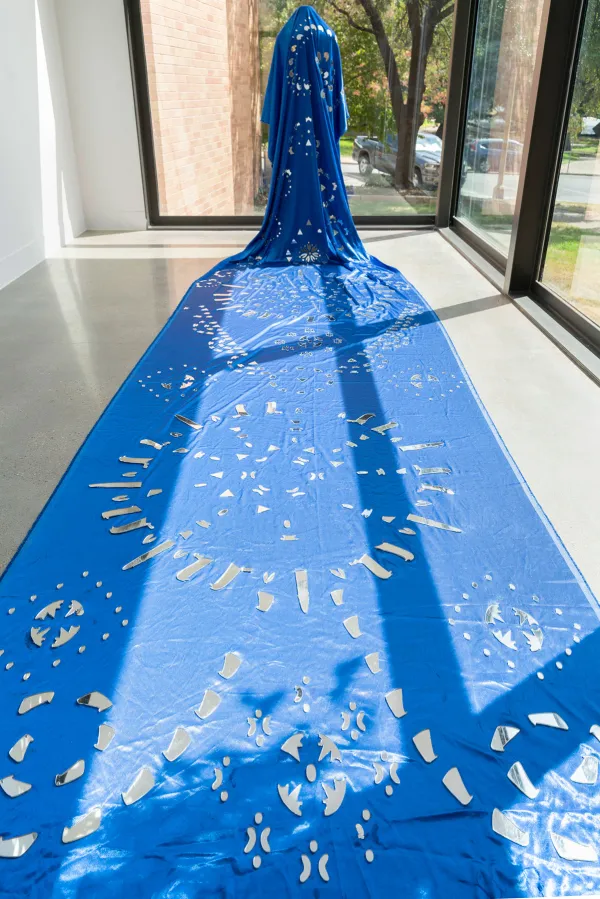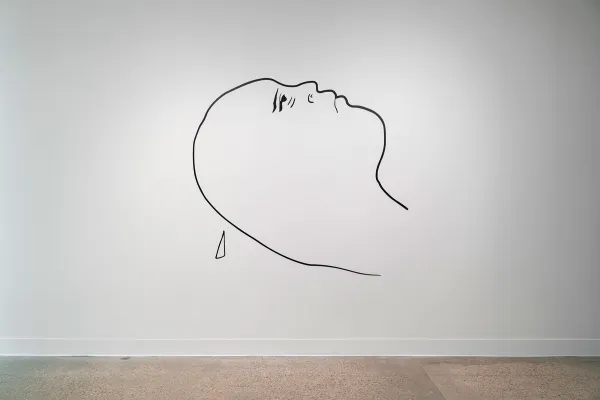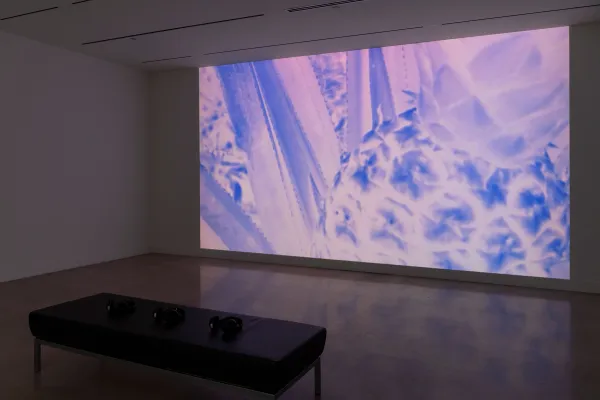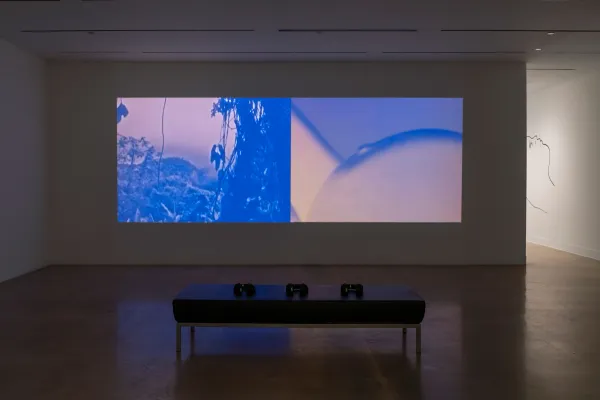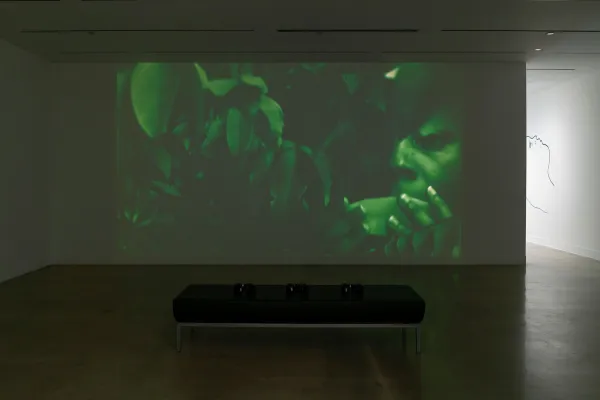If we are here ...
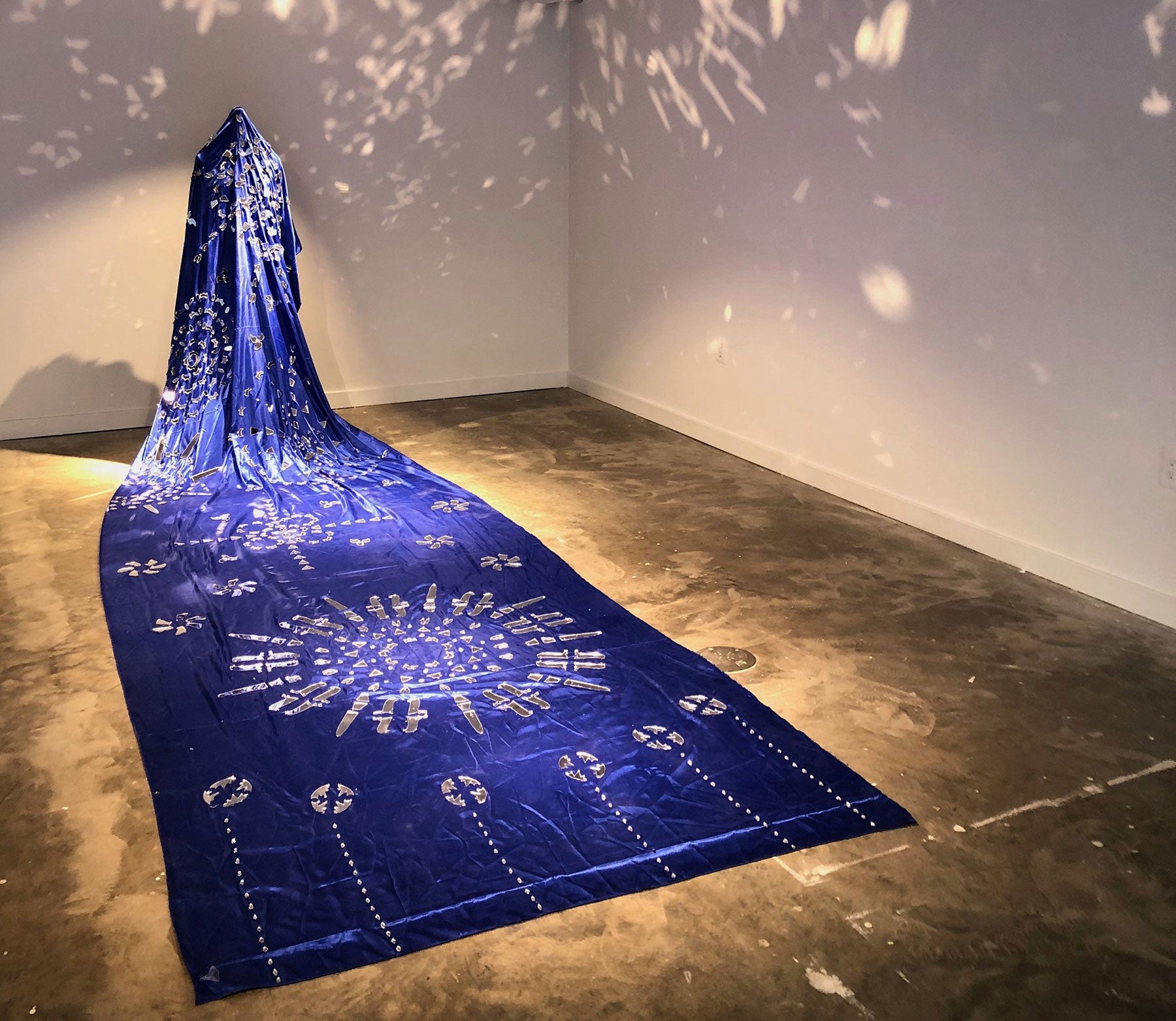
Tsedaye Makonnen, Astral Sea II, 2019. Acrylic mirror and fabric, 180 × 36 in. (457.2 × 91.4 cm). Image courtesy of the artist.
In the wake of the COVID–19 pandemic, the unfulfilled promise of the “racial reckoning” of 2020, the dissolution of Roe v. Wade, and the unfolding climate crisis, our current moment feels increasingly dystopian. If we are here… is a response to that sense of impending apocalypse in its philosophical, political, and personal dimensions. The exhibition brings together five artists whose practices explore different approaches to where and when we find ourselves from black feminist perspectives that know the world has already ended many times. Jamaican artist Deborah Anzinger’s The Distraction of Symbolism (2019) overlays the natural bounty of Jamaica, named “the land of wood and water” by its first inhabitants, and the risk and precarity of Jamaican life and ecology. In WV #1 Disappointment (2020), Autumn Knight supports us in sitting with our disappointment and discontent, not only as a motor of political engagement but as essentially human and valid in and of itself. Tsedaye Makonnen’s Astral Sea IV (2021) makes the beauty in our aspirations, and our grief tangible. And as spring artists in residence, Las Nietas de Nonó insist that there is always creative potential, even in conditions of confinement and limitation with nothing but scraps to work with.
Black feminist approaches shape the exhibition’s content and form. The project evolves over its six-month run, extending beyond the exhibition with artist residencies, research trips, and lectures. In spring 2024, all five artists will be invited to partake of UT Austin’s substantial research facilities in support of their practices. This gesture toward reciprocity and acknowledgment of process is reflective of a curatorial commitment to avoid the extractivist dynamics that so often structure relationships between artists and institutions.
Si estamos aquí…
A raíz de la pandemia de COVID–19, la promesa incumplida del “ajuste de cuentas racial” de 2020, la disolución de Roe v. Wade y la crisis climática en curso, nuestro momento actual parece cada vez más distópico. Si estamos aquí… es una respuesta a esa sensación de apocalipsis inminente en sus dimensiones filosóficas, políticas y personales. La exposición reúne a cinco artistas cuyas prácticas –basadas en las perspectivas feministas negras que saben que el mundo ya ha terminado muchas veces– exploran diferentes enfoques sobre dónde y cuándo nos encontramos. The Distraction of Symbolism [La distracción del simbolismo] (2019), de la artista jamaicana Deborah Anzinger, superpone la riqueza natural de Jamaica, llamada “la tierra de la madera y el agua” por sus primeros habitantes, con el riesgo y la precariedad de la vida y la ecología jamaicanas. En WV #1 Disappointment [WV #1 Decepción] (2020), Autumn Knight nos ayuda a afrontar nuestra decepción y descontento, no sólo como un motor de compromiso político, sino como algo esencialmente humano y válido en sí mismo. Astral Sea IV (2021) de Tsedaye Makonnen vuelve tangible la belleza de nuestras aspiraciones y nuestro dolor. Y como artistas en residencia en la primavera, Las Nietas de Nonó insisten en que siempre hay potencial creativo, incluso en condiciones de confinamiento y limitación sin nada más que restos con los que trabajar.
Los enfoques feministas negros dan forma al contenido y la forma de la exposición. El proyecto evoluciona a lo largo de seis meses y se extiende más allá de la exposición con residencias de artistas, viajes de investigación y conferencias. En la primavera de 2024, las cinco artistas serán invitadas a aprovechar las instalaciones de investigación de UT Austin para apoyar sus prácticas. Este gesto hacia la reciprocidad y el reconocimiento del proceso refleja un compromiso curatorial para evitar las dinámicas extractivistas que tan a menudo estructuran las relaciones entre artistas e instituciones.
If we are here… is organized by Nicole Smythe–Johnson, 2022–2023 VAC curatorial fellow, with assistance from Melissa Fandos, 2023–2024 VAC curatorial fellow.
Lead support for this exhibition is provided by the College of Fine Arts. Additional support provided by the Art Galleries at Black Studies, the John L. Warfield Center for African and African American Studies, and the College of Liberal Arts GRIDS Initiative.





